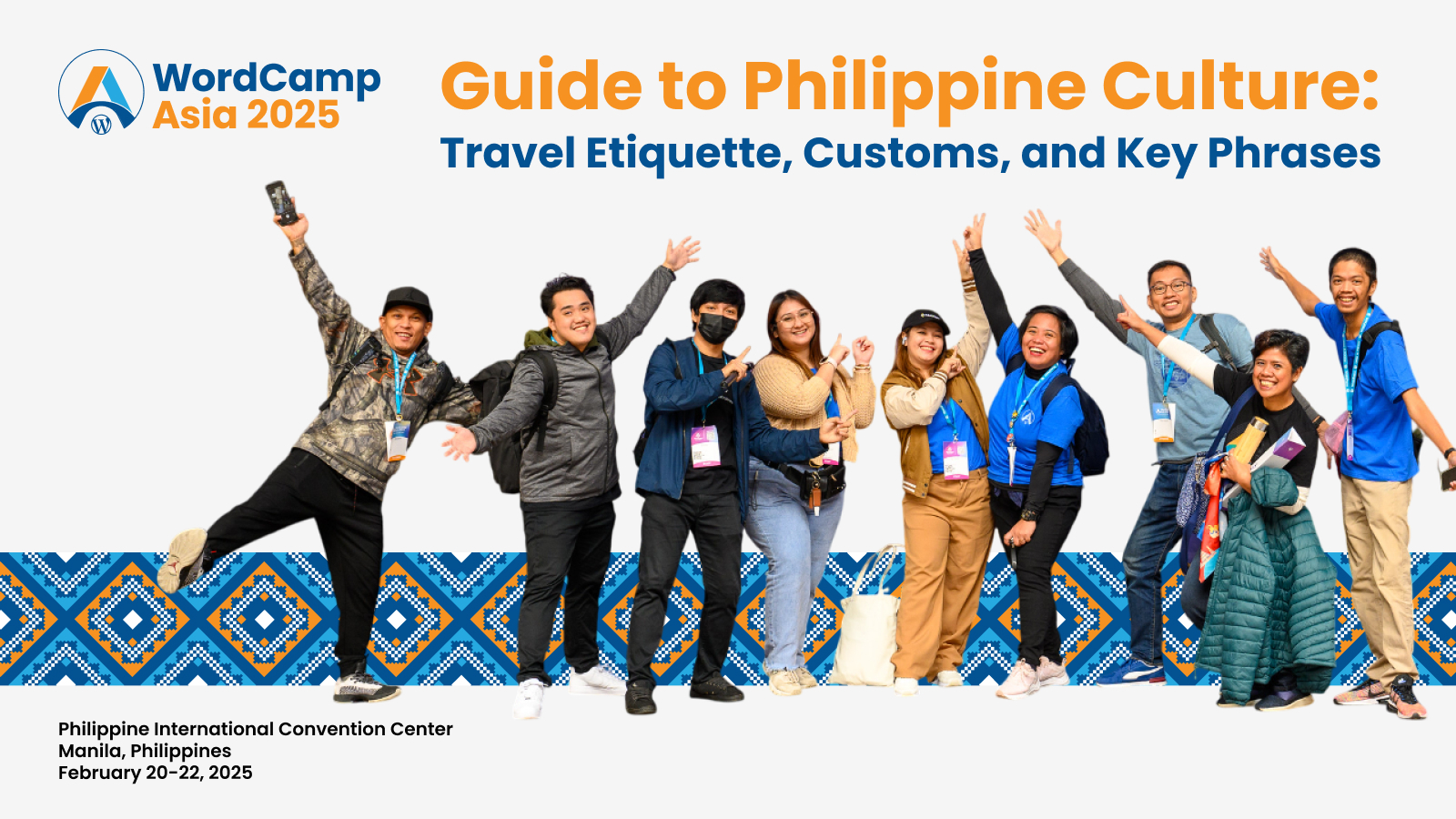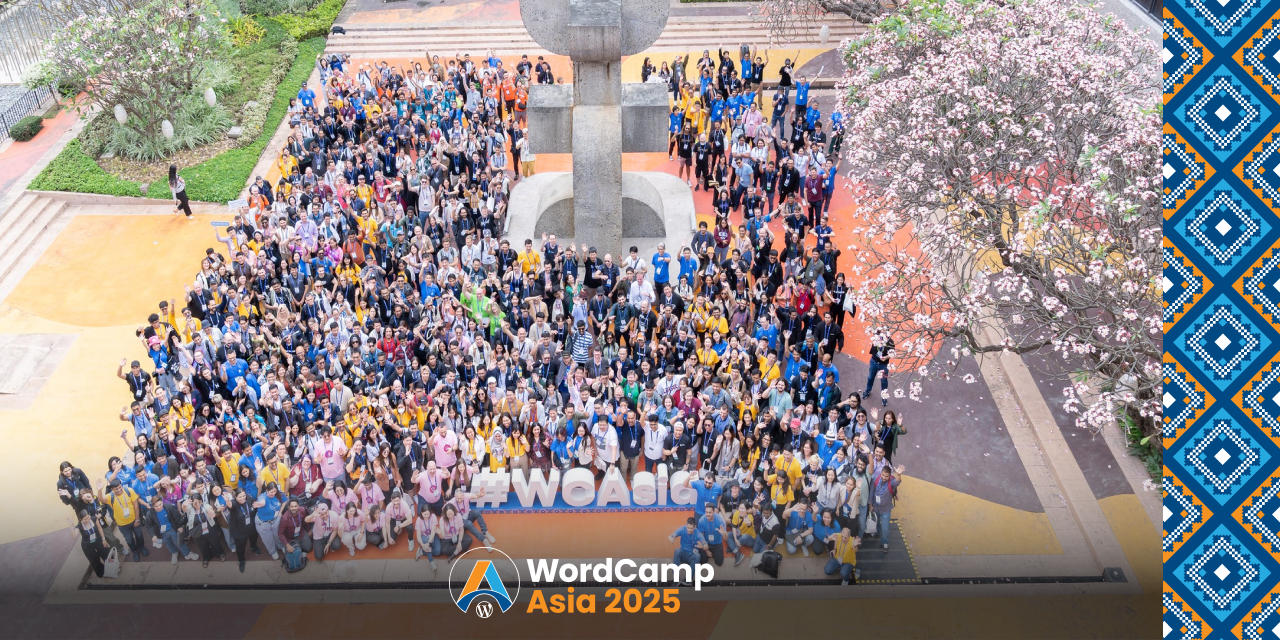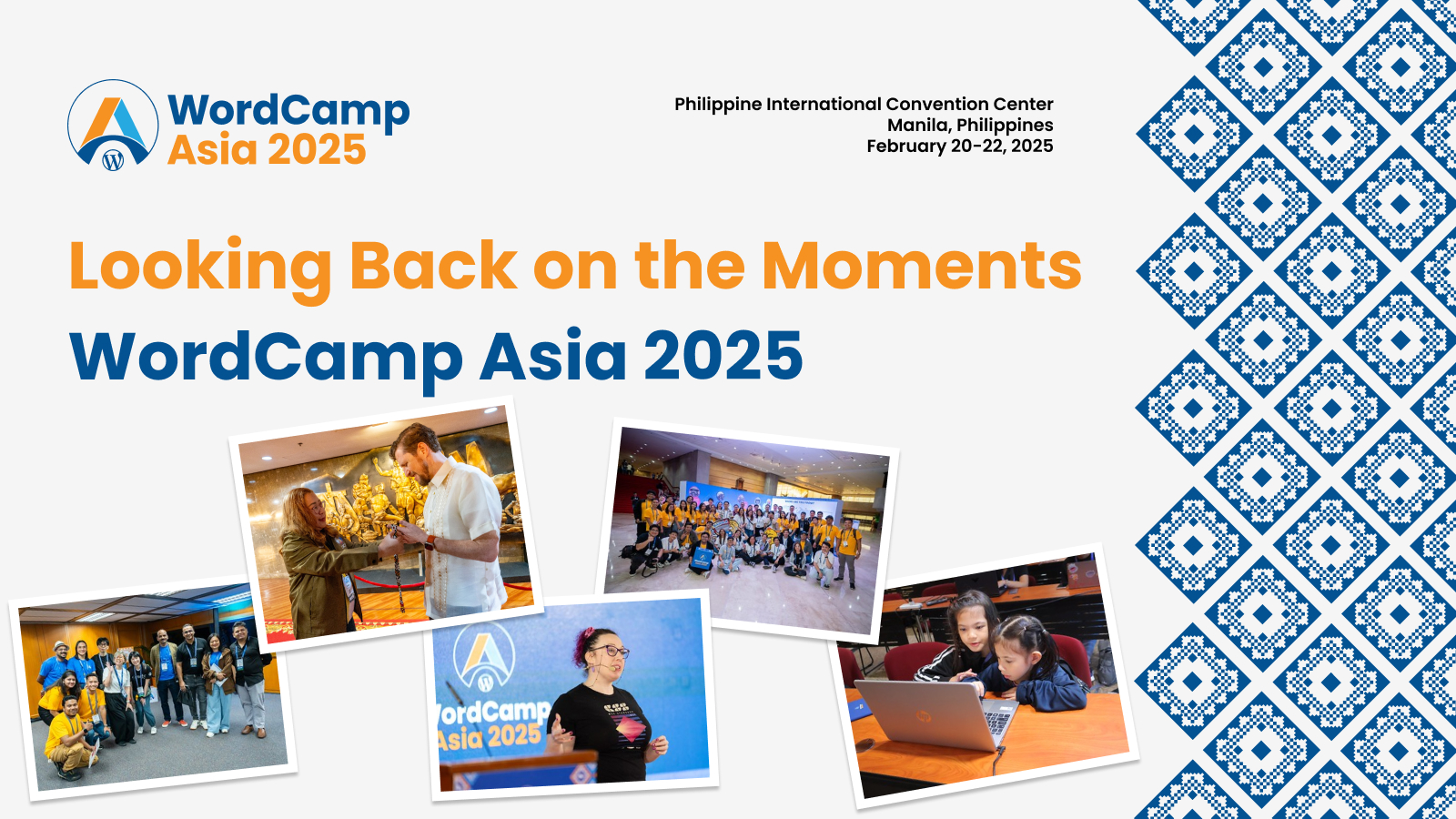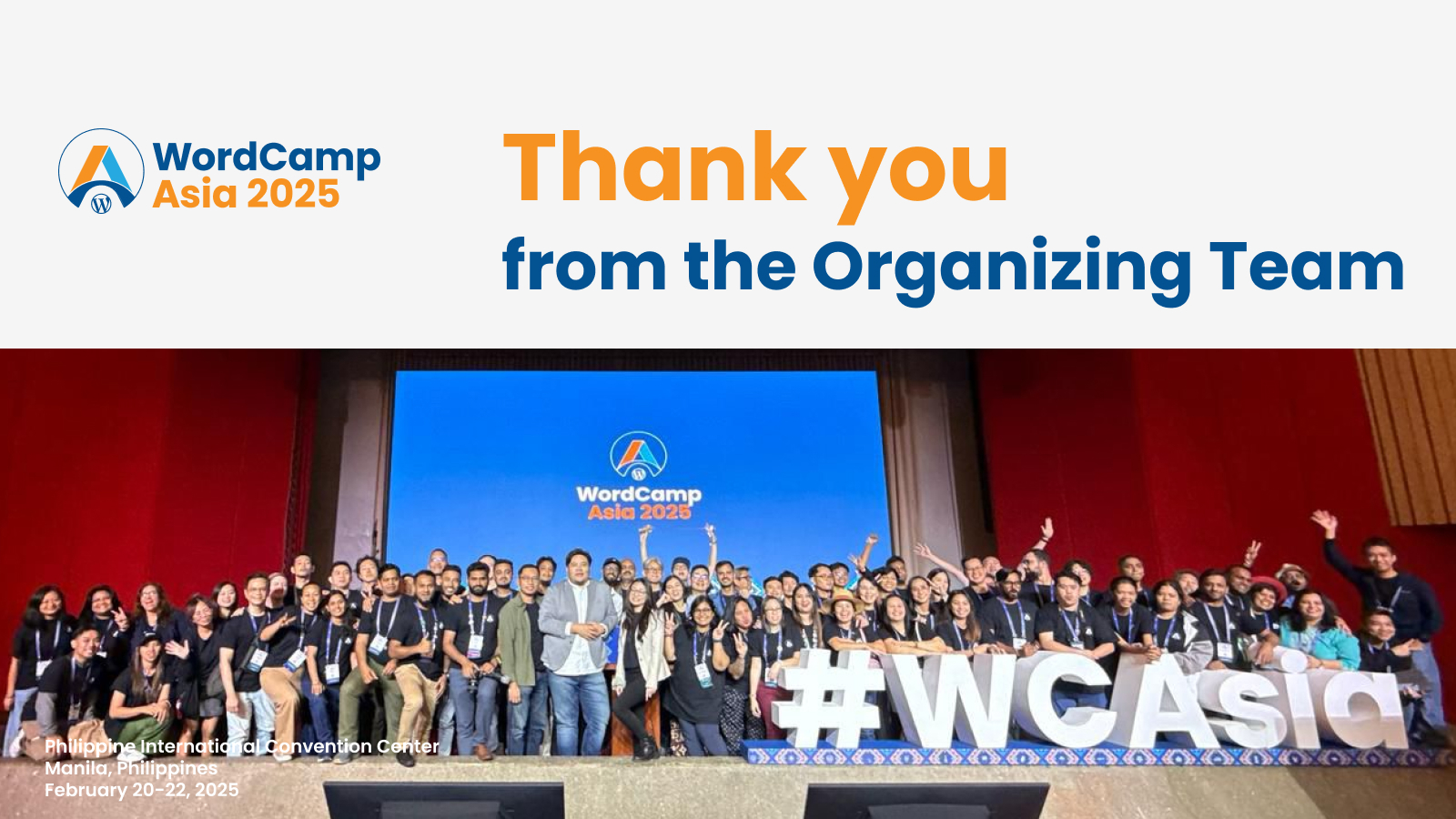We are all excited for WordCamp Asia 2025 as the date approaches and we will be in the most amazing country, Asia’s melting pot, the Philippines. 🥳 Traveling to the Philippines will undoubtedly be one of your most enjoyable experiences! To help you acquire the fullest, we have handpicked general etiquette, customs, norms, and most-used phrases in Filipino languages. This Philippines Travel 101 guide will help you warm up, explore Philippine culture, and get started. Let’s start reading.
General Etiquettes of Philippine Culture
Filipinos, like you and my country, have had some general etiquette for hundreds of years. These tips will help you get a feel for the country before you plan your trip to the Philippines.
- Smile and Be Friendly: Filipinos are well-known for their hospitality and friendliness. A warm smile goes a long way.
- Respect the Elderly: Always show respect to older people. Using polite forms of address, such as “po” and “opo” is appreciated. Also, adding “po” at the end of phrases and sentences is a common practice to add “politeness”, especially when speaking with new people or folks in positions of authority.
- Be Humble: Modesty is valued. Avoid boasting about your achievements or wealth.
- Sense of Humor: Filipinos love to laugh and have a good sense of humor. Light-hearted jokes are usually well-received.
- Sharing Food: Meals are often shared. It’s polite to try a bit of everything offered.
- Utensils: Filipinos typically use a spoon and fork. Using your hands is also acceptable in some settings.
- Casual Clothing: Although the dress is generally casual, it’s important to dress modestly, especially in rural areas and religious sites.
Social Customs of Philippine Culture
When diving into Philippine culture, social customs are an interesting aspect to explore. Here are some key norms to keep in mind during your Philippines travel. Here are some key norms and social customs to keep in mind:
- Family-Oriented: Family is central to Filipino culture. Expect to see large family gatherings and strong family ties.
- Hiya (Shame): This concept involves maintaining social propriety and avoiding actions that could bring shame to oneself or one’s family.
- Gift Giving: Small gifts are appreciated, especially when visiting someone’s home. Avoid overly expensive gifts, as they might cause discomfort.
- Indirect Communication: Filipinos often communicate indirectly to avoid confrontation. Pay attention to non-verbal cues.
- Politeness: Always use polite language and avoid raising your voice.
Basic Philippines Travel Tips
Hopefully, you have already confirmed your flight and hotel reservations for Manila, Philippines. While you are staying here, here are some basic Philippine travel tips for you.
- Punctuality: Filipinos may have a more relaxed approach to time. Being a few minutes late is generally acceptable.
- Be Cautious: Keep your belongings secure and be aware of your surroundings, especially in crowded places.
- Explore: Don’t miss the beautiful rural areas, volcanoes, and beaches.
- Greet in Common Language: Just as saying Namaste in India creates a soft environment while staying there, a few local greetings in the Filipino language will add charm.
When you travel and interact with Filipinos, it is a good idea to know how to address them in the service industry. Here are the most basic greetings:
👩 Ate (a-teh): means sister. Commonly used to address a female person
🧔♂️ Kuya (koo-yah): means older brother. It is commonly used to address a male person.
👴 Manong (mah-nong): used to address an older gentleman.
The Philippines Weather Guideline 🌞
As our program, WordCamp Asia 2025, will happen in late February, that time Manila typically experiences warm and dry conditions. Average temperatures range from lows of approximately 24°C (75°F) to highs of around 30°C (86°F). Rainfall is minimal during this period, with only a few rainy days expected.
Before packing your bags, check out this list:
- Opt for breathable fabrics like cotton or linen to stay comfortable in the warm and humid climate. Consider packing flowy dresses, shorts, and loose tops.
- Pack a sun hat or cap, sunglasses, a water bottle, portable fans, and sunscreen to protect yourself from the strong tropical sun.
- To protect against mosquitoes, especially during evening activities, bring insect repellent.
- Staying hydrated is crucial in the heat. Consider bringing a water bottle with a built-in filter, as tap water isn’t always potable.
- Bring comfortable walking shoes for city exploration. Also, PICC has a NO open-toe shoe policy. This means you need to wear sneakers and/or formal closed-toe shoes for both men and women.
Note: Appropriate attire is required for entry to PICC. Guests wearing shorts, undershirts (sando),or slippers/flip flops will not be allowed to enter. PICC reserves the right to refuse entry of any person who is not appropriately attired.
Common Filipino Lines, Words & Phrases for You
To better immerse yourself in Philippine culture during your Philippines travel, here are some common phrases and words in Filipino with a pronunciation guide. This will help you learn in advance.
| In English | In Filipino |
| Hello | Hello |
| How are you? | Kumusta ka na? / kumusta? |
| Thank you | Salamat po |
| Sorry | Paumanhin/ Sorry |
| Welcome | Maligayang pagdating |
| Good Morning | Magandang Umaga |
| Good Bye | Paalam na |
| Party | Party |
| No | Hindi |
| You are beautiful | Maganda ka |
| Wow! | Grabe! |
| Hello everyone | Kumusta sa inyong lahat |
| Let’s meet in Manila | Magkita tayo sa Maynila |
| See you in Manila | Kitakits sa Manila |
| Hello from Philippines | Hello, mula sa Pilipinas |
| Where is [place]? | Saan ang [place]? |
| How much? | Magkano / Magkano po? |
Need to mention that almost everyone can speak/understand English so it won’t be hard to communicate with the locals.
A combination of Tagalog and English (often referred to as Taglish) is the common way Pinoys communicate. It’s perfectly fine to mix a bit of Tagalog greetings with common English phrases.
For example, when shopping and you want to inquire about the price of something, you’d say, “Ate, how much po?”
Enjoy your trip to the Philippines! If you have any specific questions or need more details, feel free to ask. 😊 Immerse yourself in Philippine culture and don’t forget to take a look at our 3-day premium event schedule. See you there, Paalam na!.




